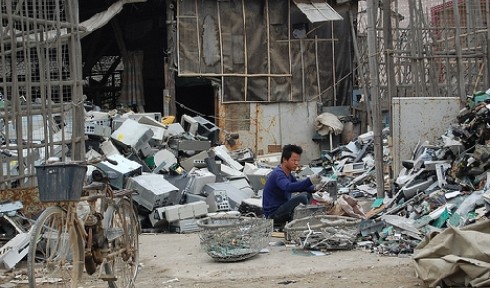Mostly, local SMEs in UK are concerned about legitimacy of these foreign companies as these ‘stranger business entities’, found in less-developed parts of the world, might deceive or mislead British companies during any part of the business. This is a quite valid point that restricts local British SMEs in falling into real business relationship with the international SMEs.
Most of the British SMEs also consider third world companies as being less efficient and less productive because of their non-industrial agriculture-based background. Furthermore SMEs belonging to the underdeveloped and developing parts of the world are taken as technically and professionally backward organisations often not conforming to globally-acclaimed manufacturing and trading standards.
Also weak law and order situations in most of the third world countries discourage British SMEs to make business deals with their companies as the element of risk is always higher, and no businessman in UK would think upon making a business contract with far-flung companies without visiting these places physically.
Interestingly, things have quite changed in the business world now but our reluctance to do business with Third World nations seems to be beyond logic at the moment.
This is not only the whole world which is now reduced into a global village, but entire business protocols and trading practices, in the modern world, have been changed and redefined, especially after the arrival of internet and cellular technologies.
Therefore, smart SMEs find it even a better option to import or export required products and commercial items from those companies and suppliers belonging to low-profile countries and regions.
Electronic commerce or ecommerce is equally significant for companies of all sizes. Whether you are a small enterprise or a well-established industrial giant, ecommerce is equally beneficial for your overall organisational growth. Especially for the local business communities, ecommerce makes them behave like a multinational firm having an immediate access to the entire business world through World Wide Web.
There are, indubitably, some possibilities that you might come across fraudsters on the internet. On the other hand, there are hundreds and thousands of genuine companies that basically operate from developing countries, and their services and products are comparable to those of the products or services offered by the technologically well-equipped countries and regions.
Thus, UK’ SMEs can successfully trade with Third World countries by utilising various ecommerce applications.
To have an interaction with genuine buyers and suppliers from other countries, it’s better to contact them through verified business-to-business portals (e.g. www.worldoftrade.com) because these types of business websites only register those companies and manufacturers who are already registered in their local chamber of commerce and have got all necessary documentations (e.g. company registration certificate, business license, and import & export license etc.), issued from their respective governments and business authorities.
Another advantage of using B2B portals is that here all companies are scrutinised and filtered through intelligent systems in order to confirm their proven trading record with other global customers. This procedure, as a result, blocks the entry of online fraudsters and you can then access the pool of verified buyers and suppliers only.
Third World countries are also supposed to be highly-potential markets where new inventions and products are sold like hot cakes. Despite practicing different religions, lifestyle in these countries is quite common, and such socio-cultural resemblance makes it easier for multinational companies to market their products and services effectively without investing so much into consumer research.
If become satisfied, consumers in these poor countries tend to show more brand loyalty towards specific products and services than consumers living in highly-developed parts of the world. Though, in some cases, ecommerce entails higher risk as compared to offline traditional form of trading, but here higher risk are also transformed into high returns in a less span of time.
Most of the companies in developing countries offer free sample products and commercial items as requested by their global importers for the essential quality check. Pakistan is the best example of this as hundreds of Pakistani SMEs are doing businesses with many European and American companies, and have become inevitable choice for their international clients because of offering top quality products and efficient timely services.
Whether you make products for local or global customers, trading with other regions and countries adds up value in your business operations other than offering the cheap labour, reduced outsourcing cost and minimum production expenditures altogether.
Thanks to the internet, you are reachable so are the other companies operating from any part of the world. You don’t need your whole life to discover a few of the potential buyers and sellers as they all are gathered at single business platforms and portals, and can be found through a single click. And you don’t need to allocate hefty budgets to physically visit far-flung areas as the same can be effortlessly done freely or by spending a few of dollars on ecommerce-based websites and portals.
Through these virtual B2B platforms approaching companies from less-developed countries is no more a riskier task. Especially for the profit-oriented SMEs, virtual presence is the actual presence for their businesses, which may offer scores of lucrative features to make profitable business in a safe business environment.
Technologically speaking, this world has been virtually compressed into a global village so that people can interact with each other more easily without worrying about geographical limitations, so there is no place for isolated souls in this small village now.
There still remains a whole new world to explore as markets lying in the Third World countries are not fully explored yet, and there are a number of buyers and suppliers looking for the global SMEs for mass trading via virtual channels.
The Internet, in a nutshell, remains the only place under the sun where you don’t search but FIND. If disagreed, just give it a try.


